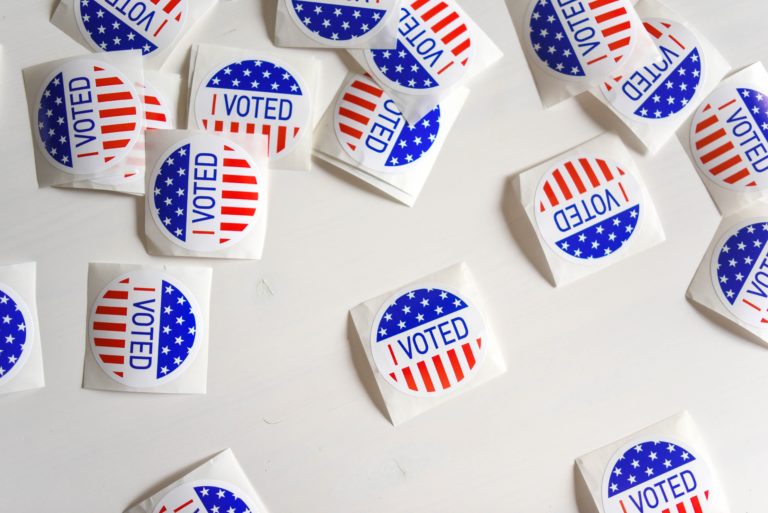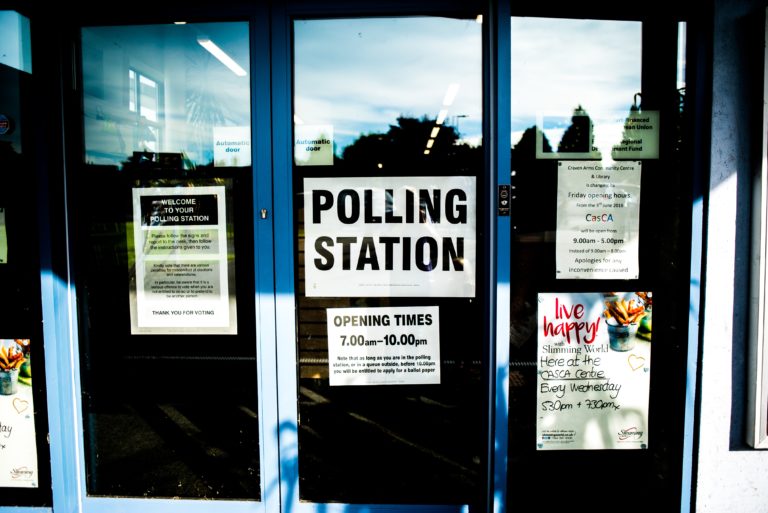On July 19, 1848, over 300 (mostly) women gathered for the Seneca Falls Convention,…
A Look Back: Reactions of Women Voters to the Kavanaugh Confirmation Hearings
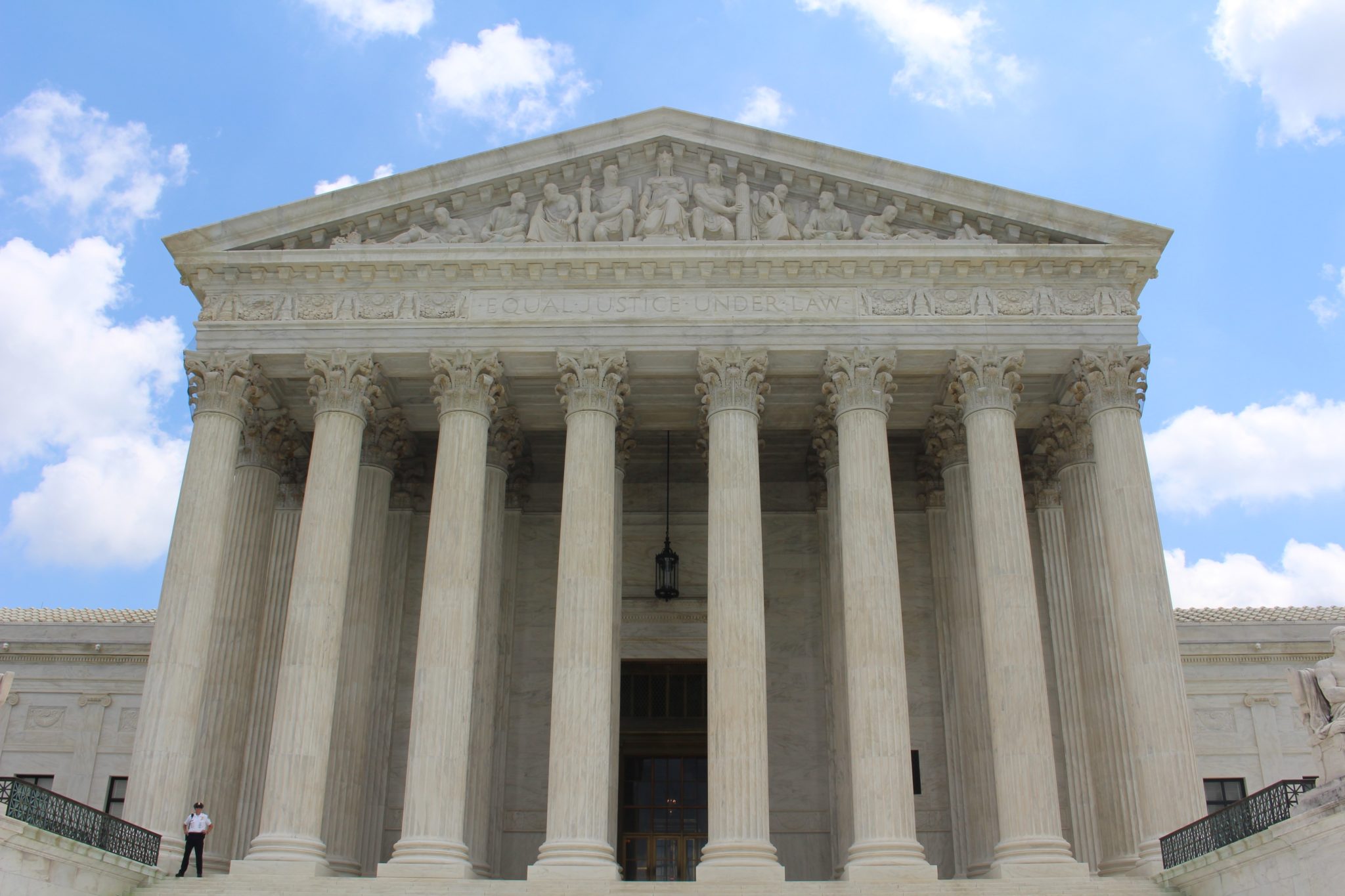
With reports over the weekend of new sexual misconduct allegations against Supreme Court Justice Brett Kavanaugh, the debate over whether he should serve on the nation’s highest court has re-emerged as a political issue.
Last fall, just after the 2018 elections, the Women & Politics Institute at American University partnered with Benenson Strategy Group to do an in-depth poll looking at the women voters who helped elect 127 women to the U.S. Congress. We wanted to understand what mattered most to them as they turned out in record numbers. (Full Poll Here)
With the renewed attention on Kavanaugh, several of the Democratic candidates are now calling for Justice Kavanaugh’s impeachment, including Kamala Harris and Elizabeth Warren. Amy Klobuchar hasn’t called for his impeachment but has said there needs to be further investigation, and she has doubled down on describing the confirmation hearings as a “complete sham.”
To understand the politics behind the candidates’ current positioning, here’s a look at the public opinion of women midterm voters just weeks after the controversial confirmation hearings.
Among Democratic women, 82% said they opposed Kavanaugh’s confirmation, including 64% who said that they STRONGLY opposed it. A majority (57%) of independent women also opposed the nomination while 18% of Republican women were opposed.
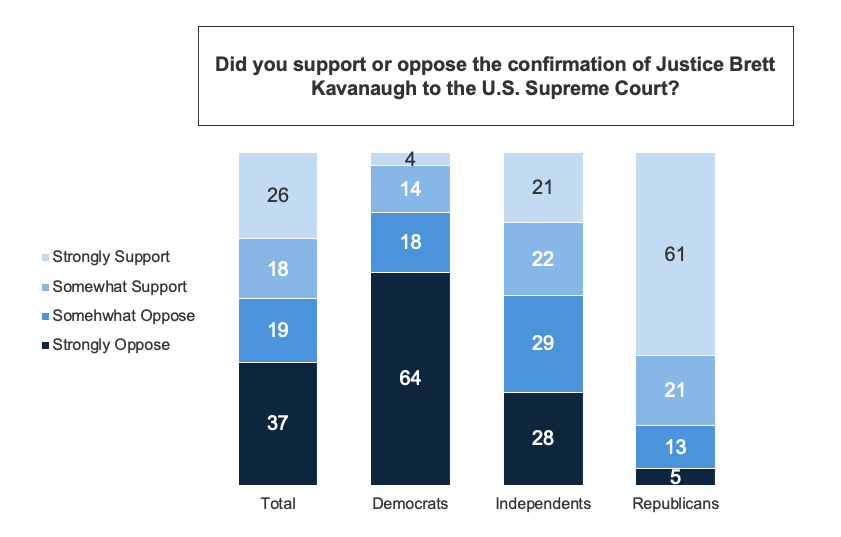
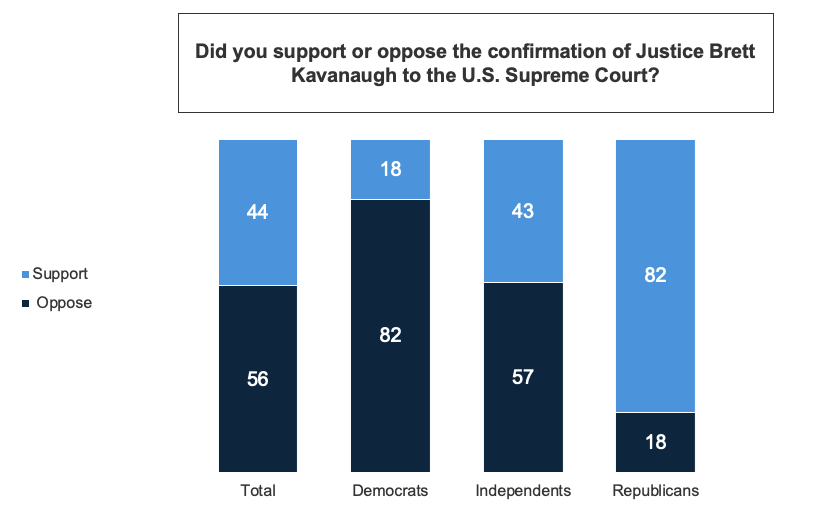
And whether or not voters supported or opposed his confirmation, a majority of women (51%) said the hearings played a role in who they ultimately voted for in the midterms.
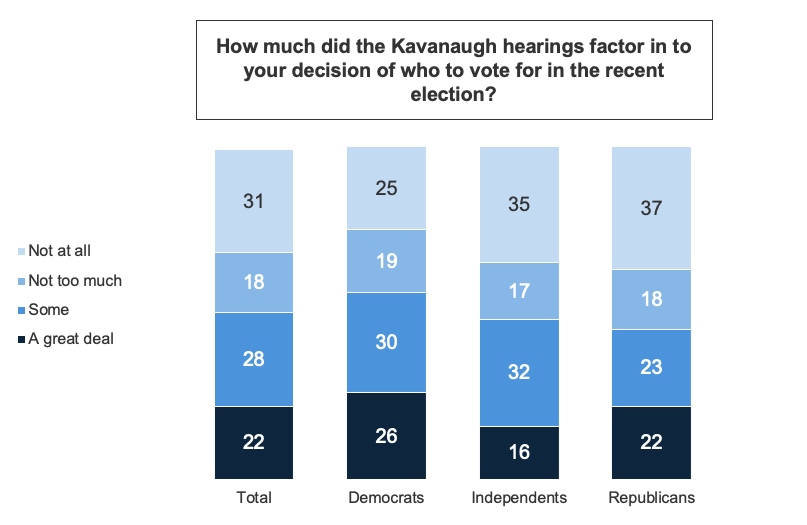
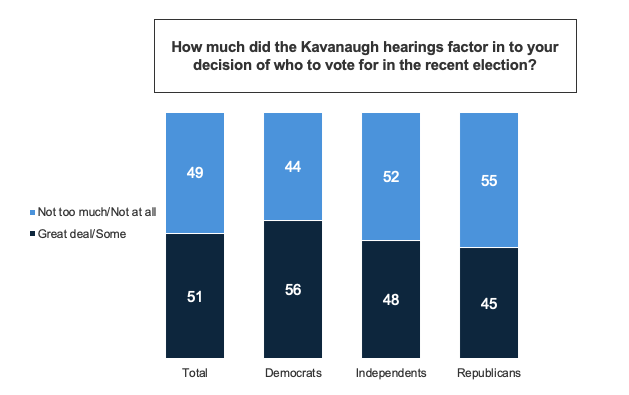
In the current debate, President Trump wasted no time coming to Kavanaugh’s defense, saying in a tweet Sunday morning, “Brett Kavanaugh should start suing people for libel … The lies being told about him are unbelievable.”
To that end, it might be instructive to look at the president’s base in relation to the larger political point he is making. Our poll that shows Republican women are very receptive to the message that men may sometimes be falsely accused of sexual assault.
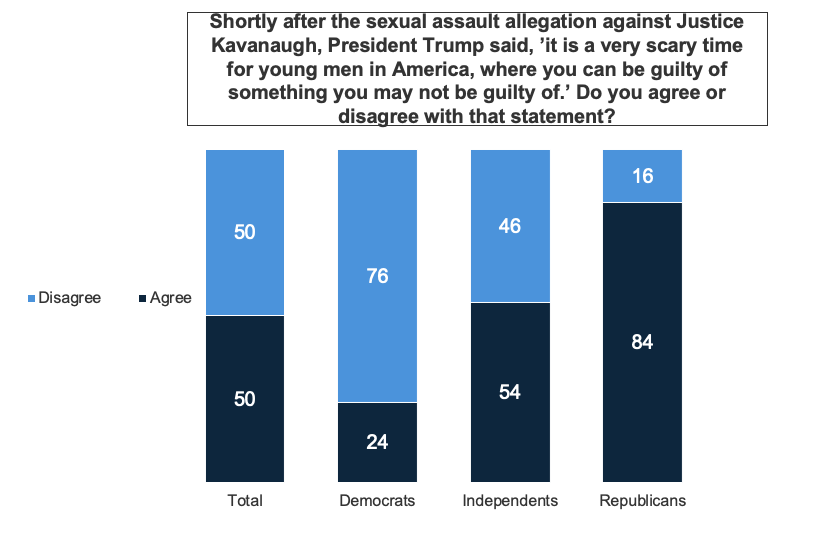
Given the strong opinion of likely women voters on both sides of this issue, it is easy to see the strong incentives that both the president and Democratic White House contenders have in putting this battle for the Supreme Court front and center in the 2020 election.
Notes on She Votes/She Leads poll methodology:
- Benenson Strategy Group conducted 1,200 online interviews with voters who voted in the 2018 midterm election from November 15-20, 2018. We oversampled women voters for a total of 799 interviews with women.
- The margin of error for the dataset overall is +/- 2.83% and the margin of error among women overall is +/- 3.47% at the 95% confidence level and is higher among subgroups.
- All of the data presented is among women voters unless otherwise noted.




